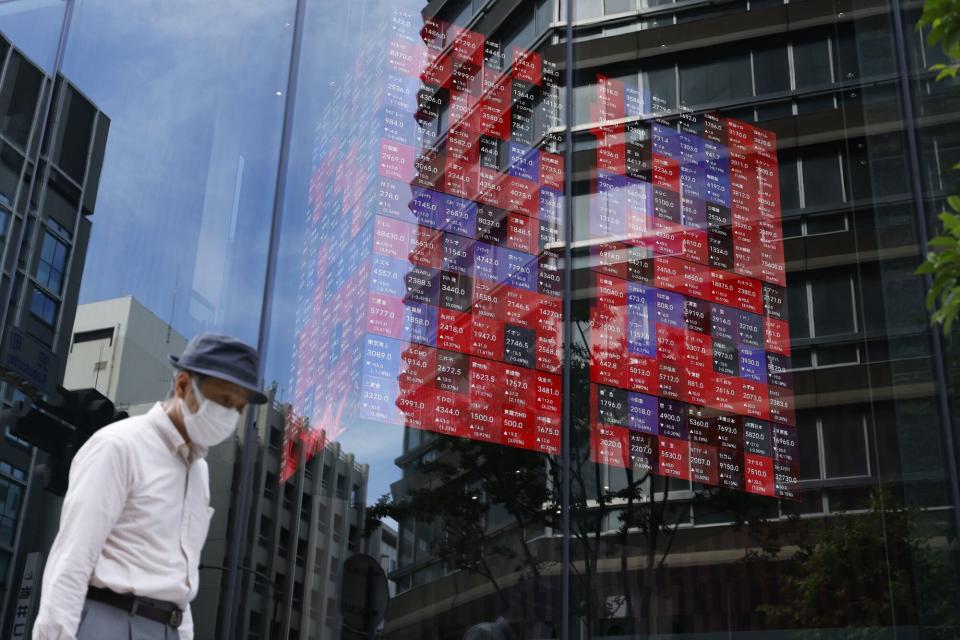KKR Poised for Kokusai Payoff With Biggest Japan IPO Since 2018

(Bloomberg) -- Kokusai Electric Corp. is set to go public on the Tokyo Stock Exchange Wednesday in Japan’s biggest initial public offering since 2018, marking a success for KKR & Co.’s buyout of the semiconductor-equipment company.
Most Read from Bloomberg
Li Keqiang, China’s Second-Most Powerful Man for a Decade, Dies at 68
Israel Latest: US Strikes Two Iran-Linked Facilities in Syria
Tech Giants Signal Rebound as Amazon, Intel Rally: Markets Wrap
US Economy Grew at a 4.9% Pace Last Quarter, Fastest Since 2021
The American private equity firm acquired the business from Hitachi Kokusai Electric Inc. through a tender offer in 2018, an early experiment in whether foreign buyout shops could successfully acquire pieces of unwieldy Japanese conglomerates and improve their performance.
It’s overcome challenges including a weakening yen and geopolitical conflicts over chips and will debut Kokusai at an offering price of ¥1,840 per share. KKR will sell about 58.8 million shares, raising ¥108 billion ($721 million).
This values Kokusai at around ¥424 billion, compared with a purchase price of ¥257.1 billion. Yet KKR’s return is likely higher than the simple calculation would indicate. It already sold off one division of the original business and borrowed a substantial portion of the purchase price, meaning the equity investment was smaller.
One indication of the original investment may be the strike price for options granted as incentives to management, which is ¥167, according to the IPO documents. That would make KKR’s return on the deal more than 10 times. More than 100 employees received options in the transaction.
The debut is taking place just as the US government and allies such as Japan are tightening controls over the export of chip technology to China, the biggest market in the world. But Kokusai is well placed in the market for what is known as film deposition equipment, along with dominant player Tokyo Electron Ltd.
“All semiconductor companies need a second supplier so Kokusai Electric’s role is guaranteed,” said Richard Kaye, portfolio manager at Comgest Asset Management. “Kokusai Electric should benefit from the growth of semiconductor capital investment.”
Fertile Ground
Buyout firms like KKR and Bain Capital have long scouted for deals in Japan, where conglomerates often held onto underperforming units even if they didn’t have the management expertise or capacity to improve their profitability. Bain led a buyout of Toshiba Corp.’s memory chip unit, now known as Kioxia Holdings Corp., and is trying to negotiate a merger of the company with Western Digital Corp.
Kokusai’s offering will be the biggest debut since SoftBank Corp.’s ¥2.4 trillion listing in December 2018. The nation’s IPO market had since slumped, with only $2.4 billion of capital raised in 2022, the smallest in 10 years, according to the data compiled by Bloomberg. The picture has turned brighter again, with the amount raised in Tokyo this year jumping almost three times from a year earlier.
“The company plays a significant role in the chip-making process,” said Kazuyoshi Saito, senior analyst at Iwai Cosmo Securities Co. Kokusai provides its products to Intel Corp., according to the data compiled by Bloomberg.
That said, chip export controls cast a shadow over the growth path. High exposure to China and the memory sector is “a distinct negative,” according to Mio Kato, analyst at LightStream Research.
China Risk
The Japanese government joined export restrictions in July, adding 23 semiconductor production equipments to export control subjects. Machines for deposition and heat treatment are included in the list, potentially affecting the 34% of sales Kokusai gets from China.
“I’m not confident enough to be convinced by their growth strategy,” said Hiroaki Tomori, chief fund manager at Mitsubishi UFJ Asset Management Co. Kokusai is trying to grow in the deposition machine market with new process as it competes with Tokyo Electron Ltd., but is unclear if this plan is feasible, according to the money manager.
Kokusai aims to invest in cutting-edge technology areas to expand its business, saying in its IPO prospectus that re-listing was a necessary option.
“It is second only to Tokyo Electron in film deposition equipment,” said Comgest’s Kaye, who invests in semiconductor related stocks including Tokyo Electron, Advantest Corp. and Shin-Etsu Chemical Co. “Its margin or capital return might be compromised by its number two position,” he added.
--With assistance from Filipe Pacheco.
Most Read from Bloomberg Businessweek
Sam Bankman-Fried Takes Stand in Reminder of Crypto’s Epic Fall
X, One Year Later: How Elon Musk Made a Mess of Twitter’s Business
Venezuela’s Primary Sweep Puts Maduro and Biden in the Hot Seat
No One Understands Corporate Boycotts Like This Former Trump Researcher
©2023 Bloomberg L.P.
